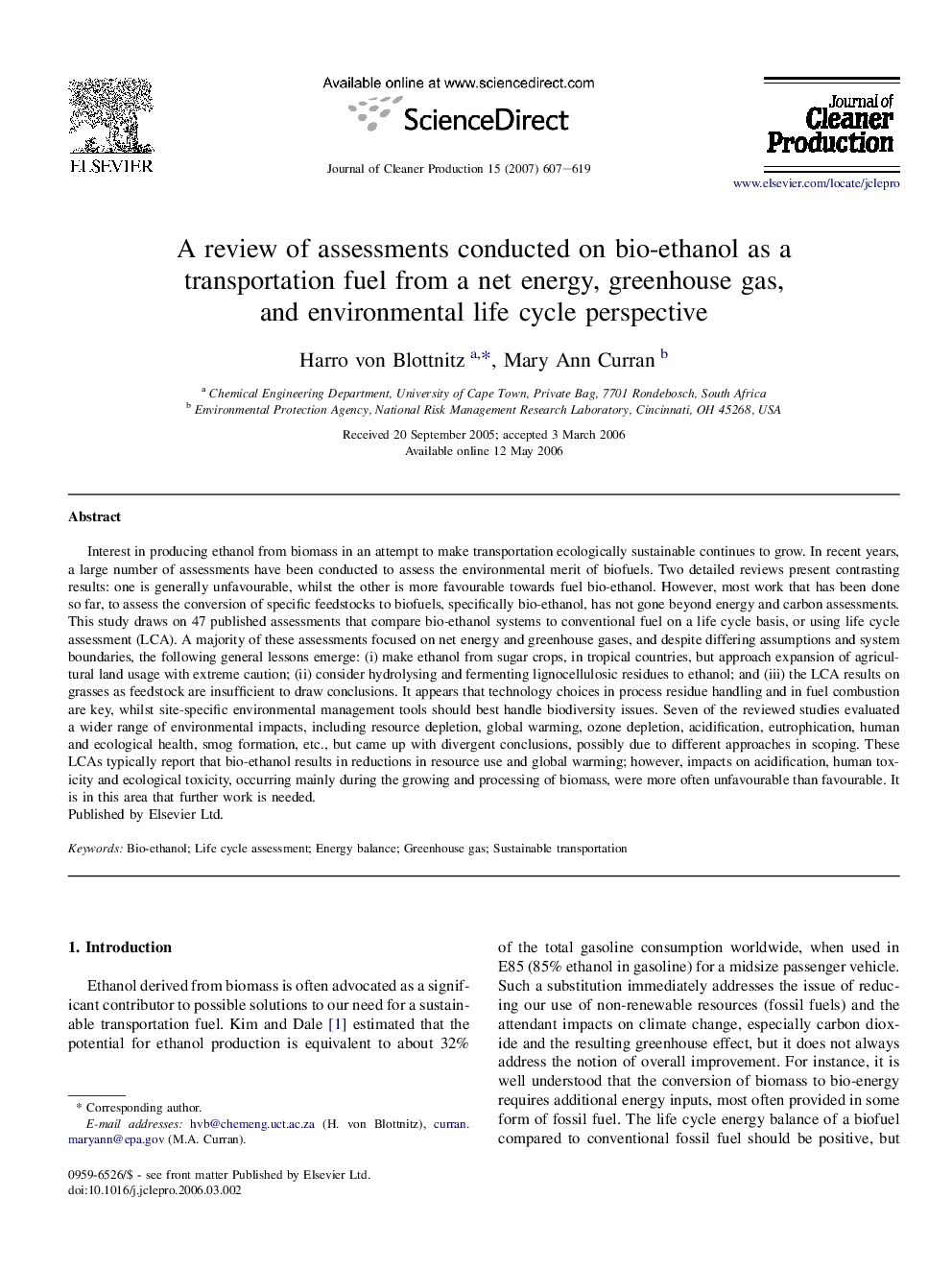| کد مقاله | کد نشریه | سال انتشار | مقاله انگلیسی | نسخه تمام متن |
|---|---|---|---|---|
| 1747403 | 1018178 | 2007 | 13 صفحه PDF | دانلود رایگان |

Interest in producing ethanol from biomass in an attempt to make transportation ecologically sustainable continues to grow. In recent years, a large number of assessments have been conducted to assess the environmental merit of biofuels. Two detailed reviews present contrasting results: one is generally unfavourable, whilst the other is more favourable towards fuel bio-ethanol. However, most work that has been done so far, to assess the conversion of specific feedstocks to biofuels, specifically bio-ethanol, has not gone beyond energy and carbon assessments. This study draws on 47 published assessments that compare bio-ethanol systems to conventional fuel on a life cycle basis, or using life cycle assessment (LCA). A majority of these assessments focused on net energy and greenhouse gases, and despite differing assumptions and system boundaries, the following general lessons emerge: (i) make ethanol from sugar crops, in tropical countries, but approach expansion of agricultural land usage with extreme caution; (ii) consider hydrolysing and fermenting lignocellulosic residues to ethanol; and (iii) the LCA results on grasses as feedstock are insufficient to draw conclusions. It appears that technology choices in process residue handling and in fuel combustion are key, whilst site-specific environmental management tools should best handle biodiversity issues. Seven of the reviewed studies evaluated a wider range of environmental impacts, including resource depletion, global warming, ozone depletion, acidification, eutrophication, human and ecological health, smog formation, etc., but came up with divergent conclusions, possibly due to different approaches in scoping. These LCAs typically report that bio-ethanol results in reductions in resource use and global warming; however, impacts on acidification, human toxicity and ecological toxicity, occurring mainly during the growing and processing of biomass, were more often unfavourable than favourable. It is in this area that further work is needed.
Journal: Journal of Cleaner Production - Volume 15, Issue 7, 2007, Pages 607–619